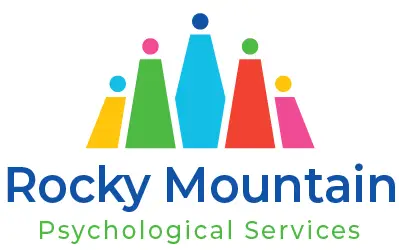Children are unique in ways unimaginable. One size does not fit all – each child develops at their own pace. They grow differently, they bud differently, and most importantly, they learn differently. Some kids are quick with grasping new concepts, others have a command over language like no other, and others speak with an unusual depth for their age. The way some kids connect information and ideas surprises parents and teachers alike. When you notice these signs you might be wondering: Could my child be gifted!? Learn more about gifted assessment with Westmount Charter School.
While friends, family and teachers all have opinions on how a child is performing compared to others their age, a gifted assessment can help to formally find the answer to your question. Gifted assessment is a cognitive assessment, also referred to as an IQ test, that aims to look at how your child’s reasoning and proficiency abilities stack up to other kids their age. This is helpful information because not only does it help parents, but also allows schools and programs identify the right approach suitable for them as well as the timing of instructions.
Gifted kids tend to learn more quickly and make connections more easily between what they already know and new information, or solve problems they’ve never seen before with more ease than their same-aged peers. They benefit from additional opportunities to learn process information more deeply or extend what is typically taught in the curriculum, and they may not need as much time or focus on the basic curriculum as other kids their age in order to meet the curriculum expectations. In Calgary, there are various options for students who demonstrate advanced cognitive abilities compared to their peers Westmount Charter School or the gifted programs in the Calgary Board of Education or the Calgary Catholic Board of Education.
What Is a Gifted Assessment?
A gifted assessment is an organized evaluation of a child’s cognitive abilities in comparison to their peers. The purpose of this assessment is to identify how the child performs on a series of tasks compared to their same-aged peers. Typically, children who score in the gifted range score in the top 2% of their peers on cognitive assessments. Scores in this range are a prerequisite when applying to programs like Westmount Charter School for giftedness or other programs such as the Calgary Board of Education’s GATE Program. Some indicators that a gifted assessment may be right for your child include:
- They learn new concepts faster than their peers.
- They show advanced problem solving or language skills for their age.
- They transfer knowledge from one setting to another with ease.
Recognizing these signs early allows families to make informed decisions about schooling, enrichment, and long term support.
The RMPS Approach to Gifted Assessment
Cognitive testing is standardized. Measures such as the WISC-V, WPPSI-IV or the Stanford-Binet-5 are the typical cognitive assessment measures that are requested as part of an application to a gifted program. Standardized assessment means that the administrator follows specific “rules” when administering the assessment so that no one child gets more support or help than another and that the results can be directly compared.
With that in mind, it might seem like all gifted assessments are the same. This leads many parents to pick up the phone, call a few psychologists, inquire about their fee, schedule or time-frame of results. This makes sense with the idea that the assessment measures are standardized. What many parents may not realize is how crucial proper interpretation of test scores can be. While standard methods of evaluating results are often appropriate for many students, they may not fully capture your child’s unique strengths and potential. As experienced clinicians, we go beyond the basics. By thoughtfully combining scores or incorporating additional assessments when appropriate, we’re able to create a more complete and accurate picture of your child. This deeper level of analysis can help ensure your child is represented in the best possible light—particularly when applying to selective or competitive programs.
At RMPS, we do take that extra step of critically looking at a child’s assessment results to ensure that we really understand the child and their capacity. If we believe that a child’s performance and capabilities are better represented by combining scores in a different way or with additional testing, we will take those next steps for the benefit of the child. Our goal is to support children with accessing the programs that will best fit their needs. We do that in carefully considering our approach to assessment and interpretation..
You may expect the following at RMPS:
- Parent Interview and History. An elaborated discussion with parents to understand the developmental, medical, family, and educational history.
- Customized Assessment Plan. Designed such that it aligns with school requirements and the child’s particular background.
- Individual Testing Sessions. One or two individual sessions with a skilled clinician.
- Thorough Review and Reporting. Evaluation of results and writing of report
- Feedback and Discussion. Interactive meeting to discuss findings and next steps.
- Follow Up Support. An optional six week check in to respond to any questions and to come up with the next steps.
The goal of this multi-layered process is to ensure end-to-end support for families. RMPS equips parents with strategies and techniques to foster their child’s growth long term.
Why Westmount Charter School Requires a Gifted Assessment
Westmount Charter School is a renowned school for gifted children in Calgary. They require families to provide a formal gifted assessment as part of their admissions process. For families applying to Kindergarten through Grade 4, the application deadline for the upcoming school year is November 28. Details can be found on their official website: https://www.westmountcharter.com/admissions/k-4-admissions/
It’s important that parents understand that formal assessments do take time. It often takes a few weeks to a month to get the assessment done and the report written. So parents are encouraged to book early to ensure that the report is done before the Westmount’s November 28 deadline to reduce stress. At RMPS, the process includes a parent interview, 1-2 testing sessions, report preparation, and a meeting to discuss results. Westmount Charter School is famous in Calgary for being a dedicated program for gifted learners. Some things to know about gifted assessments when applying to Westmount Charter School:
Application Deadline:
RMPS wants to help families to have their assessment reports in time for Westmount’s November 28 application deadline.
Narrow Scope of Assessment:
Westmount focuses mainly on admission requirements, not the child’s full developmental profile.
High Competition:
Admission is extremely competitive. A report that is clear and written by a clinician who understands formal assessment as well as the admission criteria for Westmount can help to increase chances of acceptance.
One Size Fits All Results:
Applying to Westmount provides a simple yes or no outcome. But, even if your child isn’t accepted to Westmount, the assessment can still be a benefit to you and your child. RMPS delivers individualized recommendations that can benefit parents in making school or program decisions and also makes recommendations that can be helpful in any school setting.
In short, while Westmount may be the end goal for many families, a gifted assessment by RMPS can be helpful for your application to gifted programs and can also be helpful beyond your child’s application to a gifted program.
The RMPS Advantage: Beyond Admission Letters
Choosing RMPS is not just about preparing your child for school applications, it is about investing in a holistic understanding of their growth. Families benefit from:
- Clarity for the Future: Insights into academic pathways, enrichment opportunities, and potential challenges.
- Tailored Recommendations: Practical strategies for supporting children at home and in school.
- Peace of Mind: Confidence that your child will be treated with care, dignity, and their performance on standardized assessment will be presented with understanding of the requirements of the program to which you are applying.
- Flexible Use: RMPS assessments are used for a variety of uses including application to gifted programs, helping parents to understand their child’s learning profile, helping parents with selecting programs that fit their child’s learning strengths and challenges, or helping a potential school to understand more about a child..
Steps to Get Started with RMPS
The process of scheduling a gifted assessment is simple:
- Contact RMPS through rmpsychservices.com.
- Book an initial parent interview.
- Complete testing sessions with supportive clinicians.
- Receive results and actionable recommendations.
- Receive assessment report.
- Attend the follow up session for ongoing clarity and support (optional).
Most importantly, start early. Since the Westmount Charter School Kindergarten to Grade 4 application deadline is November 28, families who begin their assessments in advance have the best chance of submitting on time with confidence.
Closing Note
Formal assessment can help parents to answer the question or whether their child meets criteria for giftedness. A good and thorough assessment is not only a means to an end for the application process to gifted programs. It is also an opportunity to learn more about your child so that no matter what the outcome of the assessment, you will know your child better and can make an informed choice about schools, programs, or even approaches you use at home.
With RMPS, you gain not just a test score but a greater understanding of your child, tools to support their journey, and the confidence that you have chosen a partner committed to your child’s long term success.
If you are considering a gifted assessment, the time to act is now. Contact Rocky Mountain Psychological Services today and take the first step toward unlocking your child’s full potential.


